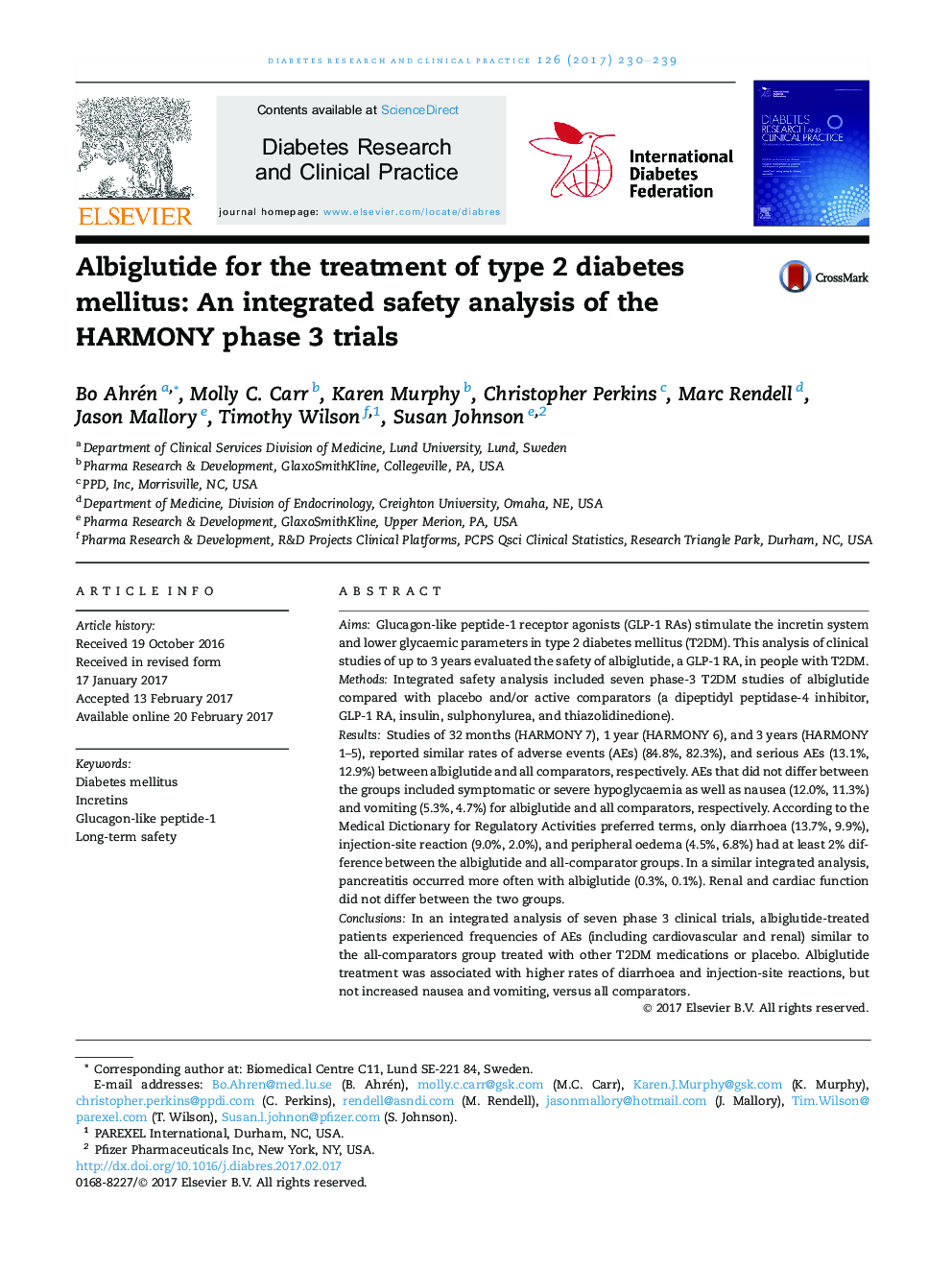| Article ID | Journal | Published Year | Pages | File Type |
|---|---|---|---|---|
| 5587108 | Diabetes Research and Clinical Practice | 2017 | 10 Pages |
â¢Integrated safety analysis from albiglutide phase 3 trials of up to 3 years' length.â¢Frequency of overall AEs was similar between albiglutide and pooled comparators.â¢Renal and cardiac function were similar between albiglutide and pooled comparators.â¢Specific AEs with similar frequencies included nausea, vomiting, and hypoglycaemia.â¢Injection-site reaction and diarrhoea AEs were more frequent with albiglutide.
AimsGlucagon-like peptide-1 receptor agonists (GLP-1 RAs) stimulate the incretin system and lower glycaemic parameters in type 2 diabetes mellitus (T2DM). This analysis of clinical studies of up to 3Â years evaluated the safety of albiglutide, a GLP-1 RA, in people with T2DM.MethodsIntegrated safety analysis included seven phase-3 T2DM studies of albiglutide compared with placebo and/or active comparators (a dipeptidyl peptidase-4 inhibitor, GLP-1 RA, insulin, sulphonylurea, and thiazolidinedione).ResultsStudies of 32Â months (HARMONY 7), 1Â year (HARMONY 6), and 3Â years (HARMONY 1-5), reported similar rates of adverse events (AEs) (84.8%, 82.3%), and serious AEs (13.1%, 12.9%) between albiglutide and all comparators, respectively. AEs that did not differ between the groups included symptomatic or severe hypoglycaemia as well as nausea (12.0%, 11.3%) and vomiting (5.3%, 4.7%) for albiglutide and all comparators, respectively. According to the Medical Dictionary for Regulatory Activities preferred terms, only diarrhoea (13.7%, 9.9%), injection-site reaction (9.0%, 2.0%), and peripheral oedema (4.5%, 6.8%) had at least 2% difference between the albiglutide and all-comparator groups. In a similar integrated analysis, pancreatitis occurred more often with albiglutide (0.3%, 0.1%). Renal and cardiac function did not differ between the two groups.ConclusionsIn an integrated analysis of seven phase 3 clinical trials, albiglutide-treated patients experienced frequencies of AEs (including cardiovascular and renal) similar to the all-comparators group treated with other T2DM medications or placebo. Albiglutide treatment was associated with higher rates of diarrhoea and injection-site reactions, but not increased nausea and vomiting, versus all comparators.
